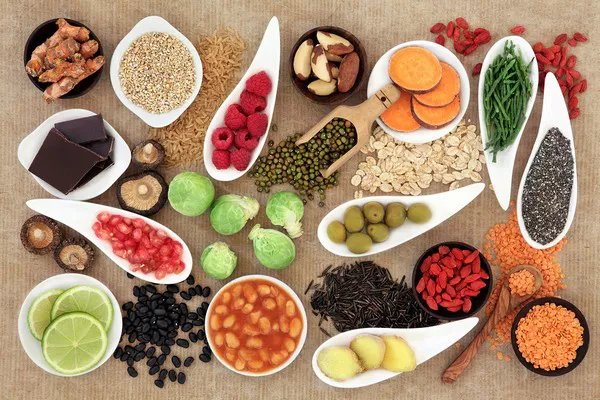Protein is an essential nutrient that plays a vital role in building and repairing tissues in the body. It is also important for maintaining a healthy immune system and producing enzymes and hormones. However, there is a common misconception that consuming large amounts of protein can lead to weight gain. In this article, we will explore the relationship between protein and weight gain.
What is Protein?
Protein is a macronutrient that is made up of amino acids. There are 20 different amino acids, and the body uses them to build and repair tissues, produce enzymes and hormones, and maintain a healthy immune system. Protein is found in a variety of foods, including meat, fish, poultry, eggs, dairy products, beans, and nuts.
The recommended daily intake of protein varies depending on age, sex, and activity level. The average adult needs about 0.8 grams of protein per kilogram of body weight per day. However, athletes and people who are trying to build muscle may need more protein.
How Does Protein Affect Weight?
Protein can help with weight loss because it is more satiating than carbohydrates or fat. This means that it can help to reduce hunger and cravings, which can lead to a reduction in calorie intake.
In addition, protein has a higher thermic effect than carbohydrates or fat. This means that the body burns more calories digesting protein than it does digesting carbohydrates or fat. This can help to increase metabolism and promote weight loss.
However, consuming too much protein can lead to weight gain. This is because excess protein is converted into glucose by the liver, which can be stored as fat if it is not used for energy.
The Role of Calories
Weight gain occurs when there is an excess of calories in the diet. This means that consuming too many calories, regardless of the source, can lead to weight gain.
Protein is a calorie-dense nutrient, which means that it contains more calories per gram than carbohydrates or fat. Consuming too much protein can lead to an excess of calories in the diet, which can lead to weight gain.
A study published in the Journal of the Academy of Nutrition and Dietetics found that consuming a high-protein diet can lead to weight gain if it results in an excess of calories in the diet. The study found that participants who consumed a high-protein diet gained weight if they consumed more calories than they burned.
The Role of Exercise
Exercise plays an important role in weight management. Regular exercise can help to increase metabolism, burn calories, and promote weight loss.
In addition, exercise can help to promote muscle growth, which can increase the body’s ability to burn calories at rest. Protein is important for muscle growth, so consuming enough protein is important for people who are trying to build muscle and lose weight.
A study published in the Journal of the International Society of Sports Nutrition found that consuming a high-protein diet can help to promote muscle growth and improve body composition in people who are exercising regularly.
The Role of Macronutrient Balance
The balance of macronutrients in the diet can also affect weight. Consuming too much of any macronutrient, including protein, can lead to weight gain if it results in an excess of calories in the diet.
The American Heart Association recommends a balanced diet that includes a variety of macronutrients. The recommended macronutrient breakdown is:
Carbohydrates: 45-65% of calories
Protein: 10-35% of calories
Fat: 20-35% of calories
Consuming a balanced diet that includes the recommended amounts of carbohydrates, protein, and fat can help to promote weight management and overall health.
The Role of Individual Differences
Individual differences can play a role in how protein affects weight. Some people may be more sensitive to the effects of protein on metabolism and weight, while others may be less sensitive.
In addition, the type of protein consumed can affect weight. Animal-based proteins, such as meat and dairy, are often high in saturated fat and can contribute to weight gain if consumed in excess. Plant-based proteins, such as beans and nuts, are often lower in calories and can be a healthier option for weight management.
Conclusion
Consuming too much protein can lead to weight gain if it results in an excess of calories in the diet. However, protein can also help with weight loss by increasing satiety, promoting metabolism, and supporting muscle growth.
The balance of macronutrients in the diet, as well as individual differences, can affect how protein affects weight. Consuming a balanced diet that includes the recommended amounts of carbohydrates, protein, and fat can help to promote weight management and overall health.
It is important to consult with a healthcare professional or registered dietitian before making any significant changes to your diet or exercise routine. They can help you determine the best macronutrient balance and calorie intake for your individual needs and goals.
[inline_related_posts title=”You Might Be Interested In” title_align=”left” style=”list” number=”6″ align=”none” ids=”4391,4357,4282″ by=”categories” orderby=”rand” order=”DESC” hide_thumb=”no” thumb_right=”no” views=”no” date=”yes” grid_columns=”2″ post_type=”” tax=””]
































